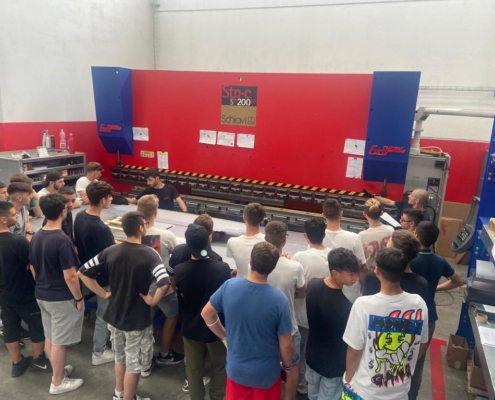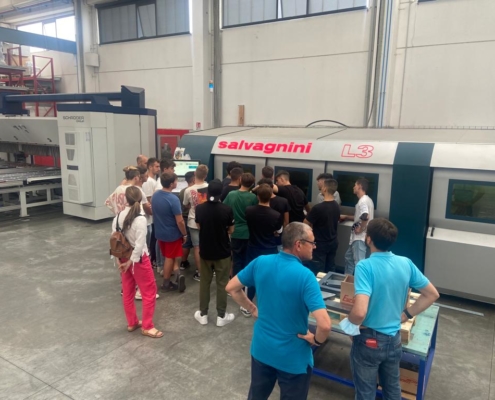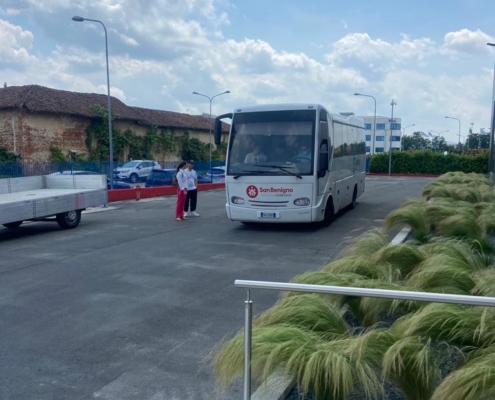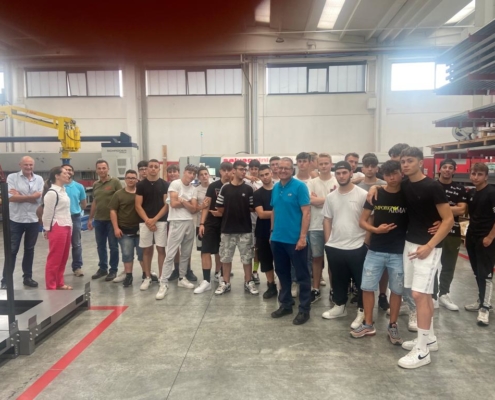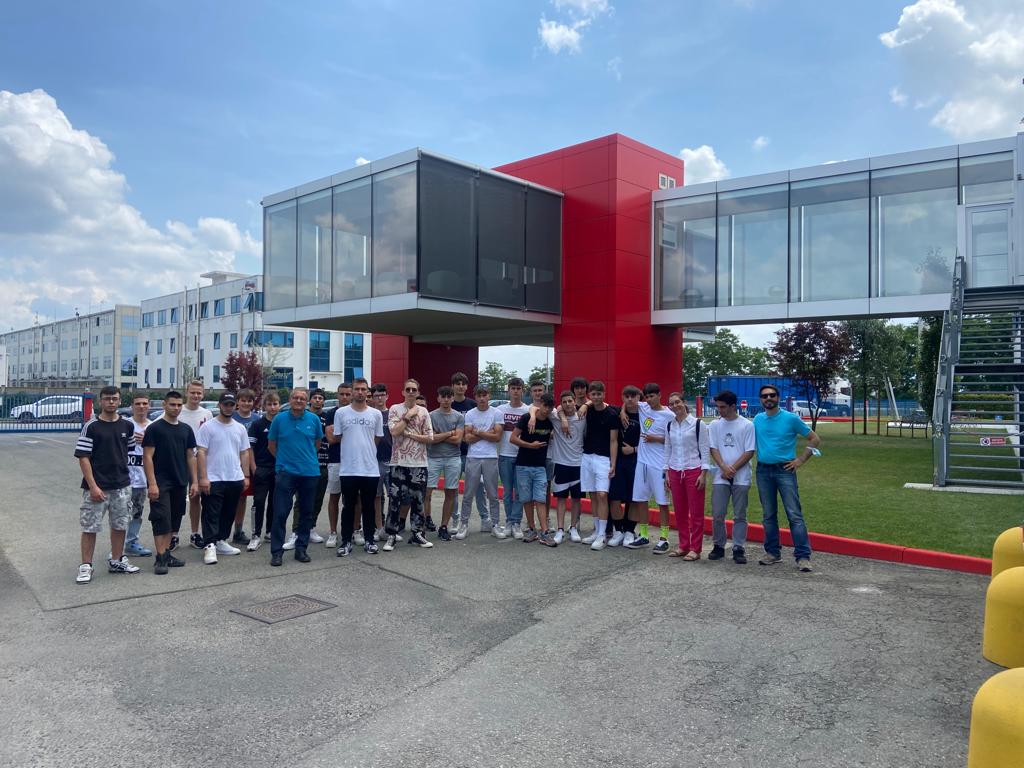We, as a company, put all our trust in the new generation, and we say so in no uncertain terms. After all, if young men and women, thanks to a good, secure and stimulating job, can look to tomorrow with serenity, we ‘old companies’ can also do so thanks to them.
We often happen to receive requests from local professional schools to bring classes to visit our factory. Requests that we always welcome. Beyond the turnover, the news from foreign markets and the technological innovations we manage to develop, it fills us with pride when our employees accompany around the factory boys and girls who are about to leave the same school they had attended, and we wonder if the enthusiasm of our team might be so contagious that some of those CVs land on our desks.
A final note. The latest figures from the Ministry of Education show that enrolments in technical and vocational schools are slightly up this year (38.1% and 14.7% of new entrants respectively). This is not the place to interpret the choices made by young people, yet we are pleased to know the guided tours of Eurotherm in Volpiano are likely to continue with just as much enthusiasm.
That’s why we have no problem letting 17-year-olds into our company.
Don’t young people want to work any longer?
Below our logo, the wording since 1958 stands out. To look at it now, it seems like a different era: not just because of the distance in time, but also – and perhaps above all – because of the acceleration that, for better or worse, things have taken in recent times.
It’s not melancholy, the usual back then, things were easier… far from it. But if we look at the leaps forward technology has taken, at the markets that have expanded up to become paradoxically smaller, and at how increasingly intense historical events impact on society (just think of the last two years), we realise that the terms challenge, business growth and industry have taken on new meanings.
And if we look at the charts, or also if we pause for a moment to focus on the history of Eurotherm, we cannot help but ask ourselves the most classic of questions: what now?
These days, the combination of youth and work is a sensitive topic. From precariousness to major resignations, from inflation to be dealt with to the headlines of certain press, which speak of entrepreneurs who cannot find labour: we discuss about work every day.
But perhaps not enough is being done; we want to reverse this trend.

